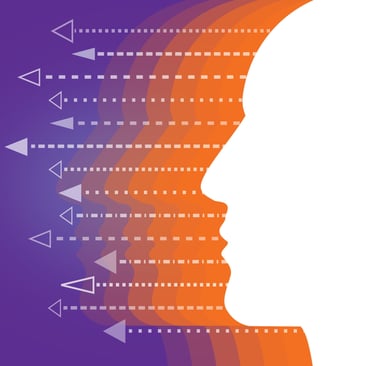Emotional Intelligence - The wisdom of the heart
A simple shift in how you handle feelings can change everything—from stress to relationships.
8/9/20252 min read
Not long ago, I often found myself in situations where I reacted very aggressively or defensively to someone’s comment—even when that person was simply trying to help me.
Friends pointed out that not every comment was criticism; often, it was well-intentioned feedback—and it didn’t have to feel as negative as it did to me. They were also often surprised by how frustrated I became. I was simply trying so hard to do everything right, yet I felt that others didn’t notice my efforts.
I began to ask myself: Why do I react this way? What is the cause?
That’s when I came across Daniel Goleman’s book Emotional Intelligence. Although the book was written in the 1990s, it is still highly relevant and reflects human behavior trends in modern society. In it, I found an explanation for why we respond the way we do—and, more importantly, how we can change it.
What is emotional intelligence, actually?
Emotional intelligence (EQ) is much more than a popular term—it’s a life skill. Scientists define it as the ability to understand and manage your own emotions, as well as recognize and influence the emotions of others.
In everyday life, EQ is everywhere. When you pause before reacting in frustration, when you listen with empathy, or when you handle a difficult conversation calmly—you are using emotional intelligence.
Unlike IQ, which is mostly fixed, emotional intelligence can be developed. Through self-awareness, emotional regulation, empathy, and practice, you can learn to respond instead of merely reacting.
I started applying emotional intelligence techniques step by step. At first, it wasn’t easy. I learned to pause and reflect, but I didn’t always know what to say or do next.
At work, I began waiting until the next day before replying to frustrating emails, giving myself space to think, process the information, and adjust my response. After a few weeks, I noticed that I was less stressed, my decisions were better, and colleagues—especially those I had previously struggled with—began showing me more respect. I felt much better and more relaxed.
I also applied some emotional regulation techniques to my behavior in traffic. Previously, I reacted strongly and nervously to every frustrating situation. Instead, I began responding with empathy, imagining different reasons why people were driving the way they were. Maybe they were in a hurry, maybe they were dealing with a bigger problem, or perhaps a child was crying in the car… I stopped judging other drivers.
There are many examples of where conscious emotional intelligence can be applied. For me personally, just a few weeks of practice helped me stay calm and composed in specific situations. My mood improved, I was no longer constantly frustrated, I felt more energetic, and I managed stress differently.
Now, I can recognize similar patterns in other people, especially my friends. On one hand, I understand them because I’ve been there myself. On the other hand, I want to help them recognize it and strengthen their own EQ. If I could train my EQ, I believe anyone can.
I continued to explore this topic further, learning how emotional intelligence connects to stress management, communication skills, and other areas of personal development.
From my perspective, developing emotional intelligence in today’s modern society is essential. Mastering our own emotions helps us remain composed in stressful situations, both personally and professionally. It helps us feel more satisfied and connected with those around us, provides inner security and self-confidence, and gives a clearer picture of who we are and how we want to live.


